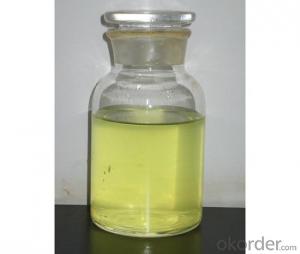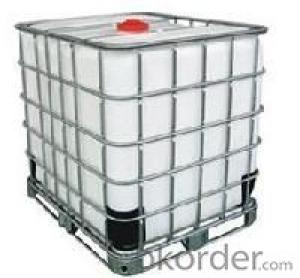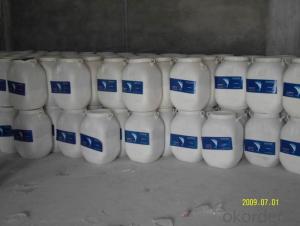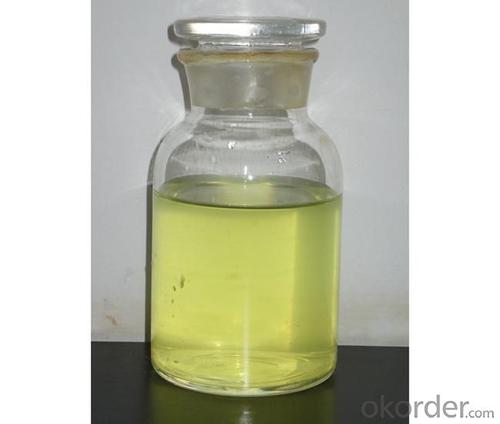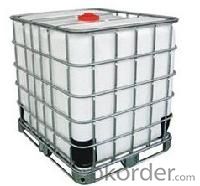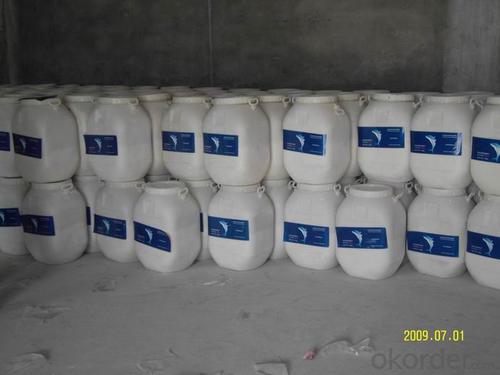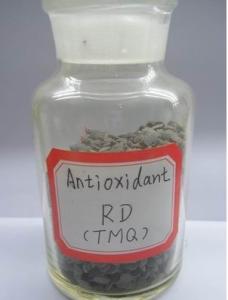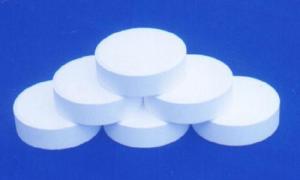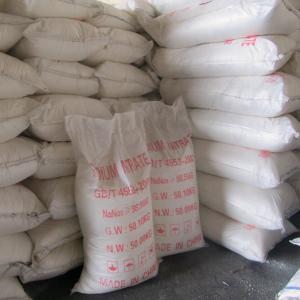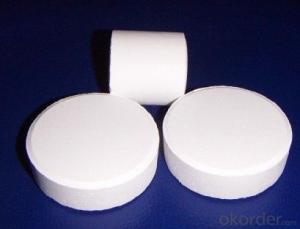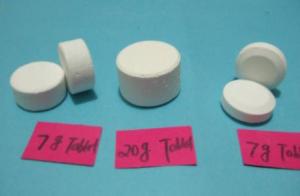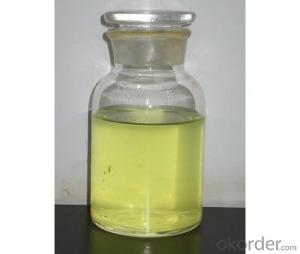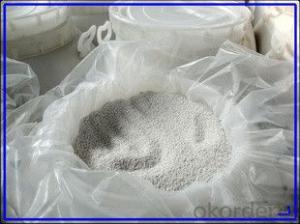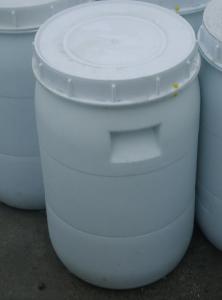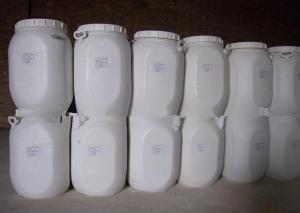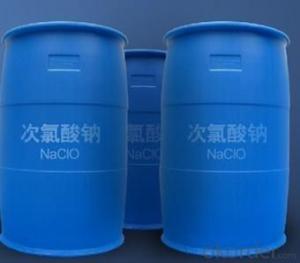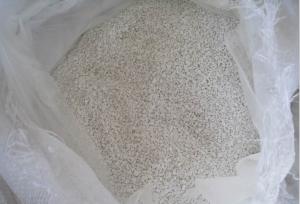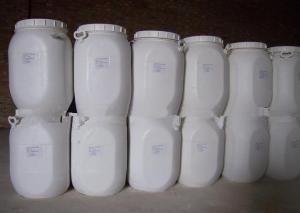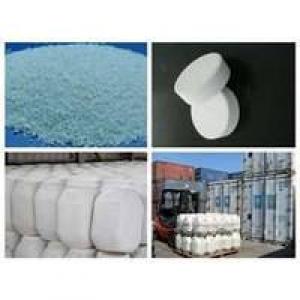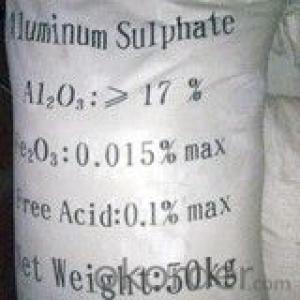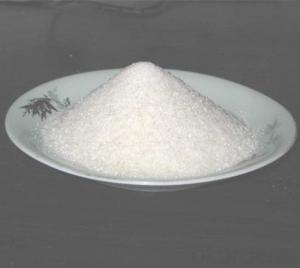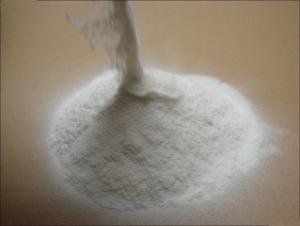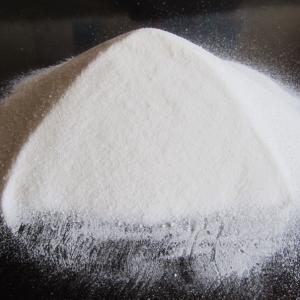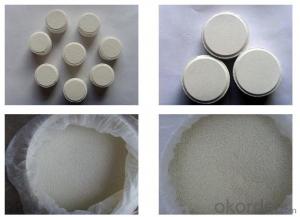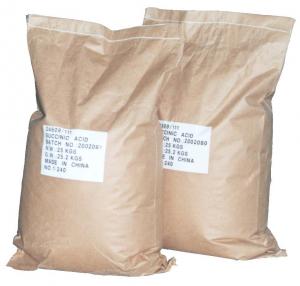Factory Supply Calcium Hypochlorite 65-70% (sodium process)
- Loading Port:
- Tianjin
- Payment Terms:
- TT OR LC
- Min Order Qty:
- 25 m.t.
- Supply Capability:
- 6000 m.t./month
OKorder Service Pledge
OKorder Financial Service
You Might Also Like
Sodium Hypochlorite
CAS NO: 7681-52-9
Chemical Formula: NaClO
Molecular Weight: 74.44
Appearance: Yellow transparent Liquid
Standard: HG/T2498-1993
Specification:
Available Chlorine: 8%-16%
NaOH: 1% Max
Transportation Info:
Class: 8 UN NO: 1791 PG:III
Application:
Disinfection for swimming pool, drinking water, cooling tower and sewage and waste water, food, and farming, hospital, school, station and household etc
Good bleaching and oxidation in paper and dye industry.
Normal Packing: 30kg drum, 1200kg IBC Tank
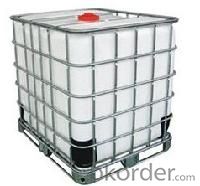
he Electrolysis antifouling machine is widely used on ship, drilling rig, seaside power plant, nuclear power plant and chemical industries.
Parameters of the marine growth preventing device:
u Voltage: AC220V ( modified according to client’s demands)
u Current: Determined by the amount of chlorine produced
u Power: 7kw/kg chlorine
u Concentration of chlorine ions in the seawater: more than 12000ppm.
u Temperature of seawater: not lower than 7 degree Celsius
System Configuration
1) sodium hypochlorite Generating unit:
Including electrolyzing cell, pipeline, valve, pipe supports and related accessories.
2) sodium hypochlorite Storage and Dosing unit:
Including sodium hypochlorite storage tank, dosing pump and pipeline, valve, pipe support and related accessories.
3) Washing Unit:
Including acid washing tank, acid washing pump, and pipeline, valve, support and accessories.
4) Control Unit:
Including control equipments for the whole seawater electrolyzing sodium hypochlorite generating system and dosing system, pipeline, valve, accessories.
5) Power supply:
Including transformer side power supply(AC380V,60Hz,3phse AC power), other equipments rated power supply(380V/220V 3phase, 4 line, AC power), and other accessories and valves.
6) Operation Method
1,Automatic running with remote control (within 100m). Each set of sodium hypochlorite generating system can operate separately, active chlorine producing capacity is 500 kg/h (chlorine ion in seawater is >15000mg/L).
2, Active chlorine producing capacity is adjustable with 50%,70%,90% by regulating the current of electrolysing cell.
- Q: Why the amount of catalyst is too small will make the chemical reaction rate slowed down
- Can significantly change the reaction rate and its own chemical properties and quantity in the reaction before and after the basic material unchanged. The catalyst has a positive catalyst (i.e., accelerates the reaction rate) and a negative catalyst (i.e., reduces the reaction rate), and generally does not specifically refer to both the positive catalyst.
- Q: High school knowledge __ teacher do not know right!
- Nothing to do, but with the percentage of activated molecules, is proportional to
- Q: Exemplify the use of green catalysts in green chemistry
- How can a green catalyst, they do not react
- Q: Also, how is the catalyst affected by heat? Please answer all of the questions not just one of the three. THANK YOU!
- It denatures the catalyst because the rise in pH or amount of H3O+ ions. Temperature will also denature the catalyst if it's out of its optimum range.
- Q: What is the catalyst for ethylene addition water? How to play a catalytic role.
- Phosphoric acid or sulfuric acid, 280 to 300 ° C, 7 to 8 MPa
- Q: Does the catalyst slow down the chemical reaction rate? Still can only accelerate
- As far as I know, depending on the definition of the catalyst to reduce the activation energy can only accelerate the reaction rate. However, some substances can reduce the rate of reaction, for example, to dilute the reaction solution to slow down the reaction rate, but slow down the general mention of the catalyst.
- Q: I think doubling the concentration of catalyst will double the rate of a reaction (K2/K1 =2). I want to confirm. This is for my project work. Please reply as soon as possible.
- A catalyst speeds up a chemical reaction by providing an alternate reaction pathway with a lower activation energy, thus increasing the number of collisions that can result in the formation of product. When the catalyst is a reactant in the rate determining step, and the reaction is first order in the catalyst, then a doubling of the concentration will double the rate. But if the rate determining step which includes the catalyst is not first order, then doubling the concentration won't double the rate. Then there is the case of a heterogeneous catalyst in which the reaction is essentially zero order in the catalyst. The amount of catalyst won't affect the speed of the reaction beyond the initial increase. The mere fact that the catalyst is present speeds up the reaction.
- Q: Where are they good catalysts and why?? THanks!
- A catalyst is a substance that speeds up a chemical reaction by providing an alternate reaction pathway with a lower activation energy. Catalysts appear not to take part in the reaction. Frequently, catalysts are not very reactive. Acids and bases, on the other hand, are very reactive. Acids (as H+) and bases ( as OH-) sometimes function as catalysts in some organic reactions. They appear to be catalysts because in the course of the mechanism H+ or OH- is regenerated.
- Q: Brief introduction of enzyme as biocatalyst and general chemical catalyst and its personality
- enzyme inactivation (4) enzyme activity can be timely and effective regulation (5) the role of the enzyme conditions are more moderate (6) most of the enzyme (1) the catalytic efficiency is very high (2) Of the catalytic activity is often associated with coenzymes, auxiliary or metal ions, and some enzyme activity also need RNA as a cofactor Caixing, such as telomerase
- Q: Why extract the genome, the digestion is always not cut
- The enzyme, like the general catalyst, only catalyzes the thermodynamics of the permissible chemical reaction, shortening the time to reach the chemical equilibrium without changing the equilibrium point. The enzyme as a catalyst has no qualitative and quantitative changes before and after the chemical reaction. The mechanism of action of enzymes and general catalysts is to reduce the activation energy of the reaction.
Send your message to us
Factory Supply Calcium Hypochlorite 65-70% (sodium process)
- Loading Port:
- Tianjin
- Payment Terms:
- TT OR LC
- Min Order Qty:
- 25 m.t.
- Supply Capability:
- 6000 m.t./month
OKorder Service Pledge
OKorder Financial Service
Similar products
Hot products
Hot Searches
Related keywords
